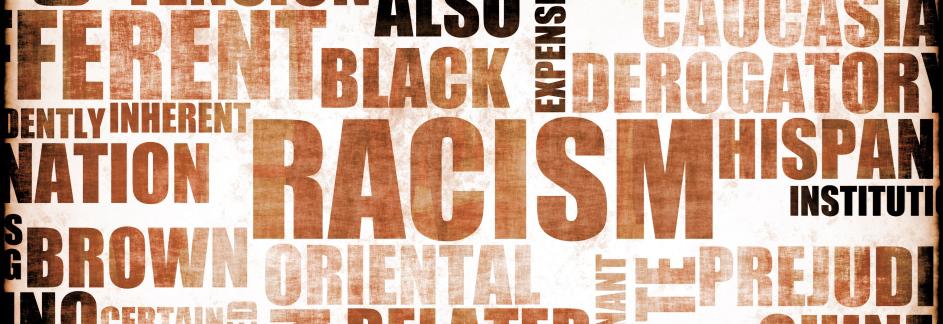Imagine, if you will, a vast ocean, shimmering under the golden rays of a united sun—a metaphorical realm where diversity flourishes and individuality is celebrated. This is the vision of a world devoid of racism and prejudice, a principle deeply embedded in the teachings of the Bahá’í Faith. The quest for such an inclusive society transcends mere idealism; it is a profound commitment to the dignity of every human being, irrespective of race, ethnicity, or background.
At the heart of Bahá’í teachings lies the acknowledgment of the oneness of humanity. This principle posits that all people are interconnected, akin to the myriad threads woven into a single, vibrant tapestry. Each thread possesses its distinct color and texture, yet collectively they form a beautiful, harmonious design. This metaphor not only illustrates the unity inherent in diversity but also emphasizes the impermissibility of discrimination that fragments this essential bond.
The Bahá’í perspective on racism is unequivocal; it is a social aberration that undermines the common purpose of humanity. Racism obscures the true essence of the human spirit, which is inherently noble and infused with potential. The teachings advocate for an examination of the societal structures perpetuating such prejudices. This introspective approach invites adherents to scrutinize their own beliefs and actions, fostering a commitment to transformation both personally and collectively.
The very fabric of society can be likened to a garden where various flora flourishes. In this idyllic setting, every plant thrives not in isolation but in symbiotic relationships with others. The eradication of racism is akin to nurturing this ecological paradise, where no species is deemed superior to another. The Bahá’í Faith encourages the cultivation of virtues such as compassion, empathy, and respect, which act as nutrients fostering this thriving garden of humanity.
To imagine a world without racism is to envision a society where dialogue replaces discord. The Bahá’í teachings highlight the importance of intercommunal dialogue as a medium for fostering understanding and respect among diverse groups. Just as a river carves its path through the landscape, attentive conversations can dismantle the entrenched barriers of misunderstanding and fear. The act of listening, of being present to another’s experience, becomes a transformative force that fosters empathy and collective growth.
However, envisioning such a world necessitates active engagement. The Bahá’í community emphasizes that it is not sufficient to simply vacate prejudiced thoughts; rather, one must replace them with an unwavering commitment to justice and equity. This requires concerted efforts at every level—individual, collective, and institutional. Social action, informed by Bahá’í principles, seeks not only to confront injustices but also to cultivate environments where education, collaboration, and love prevail.
The role of education in this paradigm cannot be overstated. As the great equalizer, education serves as the beacon of hope that illuminates pathways to understanding and acceptance. By instilling the values of unity, social justice, and human rights in the minds of youth, the Bahá’í teachings advocate for a future generation who will transcend the myopic views of their predecessors. The metaphor of a sunrise highlights this potential; just as darkness yields to light, so too can ignorance give way to enlightenment through education.
Moreover, the Bahá’í Faith articulates the necessity of challenging systemic racism. This advocacy calls for a deep examination of economic, political, and social structures that perpetuate inequity. The metaphor of a fortress comes to mind here; it is the stronghold of privilege that must be dismantled to create an equitable society. Each action taken—be it legislative advocacy or local community initiatives—acts as a battering ram against the walls of injustice, pushing forth a unified charge towards racial harmony.
Spiritual development plays a pivotal role in this transformation. The Bahá’í teachings emphasize that true progress can only be achieved when individuals undergo personal metamorphosis. This inner journey catalyzes the transformation of external societal structures. Metaphorically, individuals become alchemists, transmuting their prejudices into understanding and their indifference into active participation in the collective betterment of society.
As one navigates this transformative journey, the cultivation of virtues—such as love, justice, and equity—serves as the compass guiding behavior. The Bahá’í teachings assert that love should be the cornerstone of all interactions. Imagine a world where love transcends race, binding individuals in a collective embrace of acceptance. This powerful emotion acts as a balm, soothing the wounds inflicted by racial discord and nurturing an environment ripe for collaboration.
The vision of a world without racism, while ambitious, is not unattainable. The Bahá’í Faith provides a comprehensive framework that encourages action, reflection, and dialogue. It calls upon each individual to see themselves as part of the greater narrative of humanity. Like a constellation of stars, each person shines uniquely, yet together they form a magnificent cosmos of unity and purpose.
In conclusion, the journey towards a world devoid of racism is intricate and laden with obstacles. Yet, through the lens of Bahá’í teachings, it transforms into a quest marked by hope, virtues, and unwavering conviction. When humanity embraces its interconnectedness, a harmonious society, vibrant and rich in diversity, is poised to emerge—a vivid tapestry woven with threads of solidarity and love. As we dare to envision this future, each step taken in its pursuit becomes a testament to our shared humanity and an affirmation of our collective potential.
